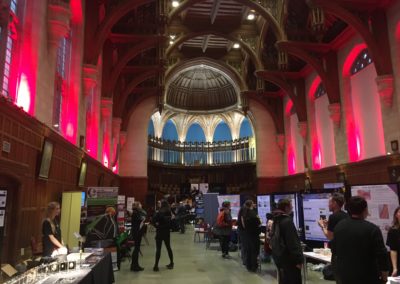Last week, Bristol hosted a celebration of Neuroscience. This was a rare chance for those of us outside the field of neuroscience to peek in and learn how our brains work, and why – sometime – they do not.
Brains on Brains
This is what the Bristol Neuroscience festival, held over three days in March, was all about. Welcoming the public into a fabulous space, and inviting some of the best brains in the brain world to come and talk to them about thier work. The festival took the format of sets of talks organised around themes of general interest, and an exhibition hall where scientists, from undergraduates through to professors, shared simplified views of their research through posters, demonstrations, games and activities. Two days of the festival were targeted at schools, and the third was open to all.
What Remented Learned
Talks on dementia, Parkinson’s, depression, and addiction took a look at what science currently knows about how and why these develop, what researchers think might be the future of treatments (or at least where the research is looking), and how care and mitigating treatments can help with quality of life in the meantime. Many of the researchers and their teams split their time between lab and clinical work. You could sense that there was an equal split in attention between the cell-level, deep-dive science in the lab, and the very personal stories, experiences, care and lives of the sufferers.
The Bristol Neuroscience Festival has been a celebration of the mind and brain. The stalls in the exhibition hall may have centred around child friendly games and activities, but the students and professors were only too happy to go as deep as you like about what these were demonstrating, what they were working on, what the collective state of the art is, and where future research is needed. The enthusiasm from these folk was tangible and infectious.





Recent Comments